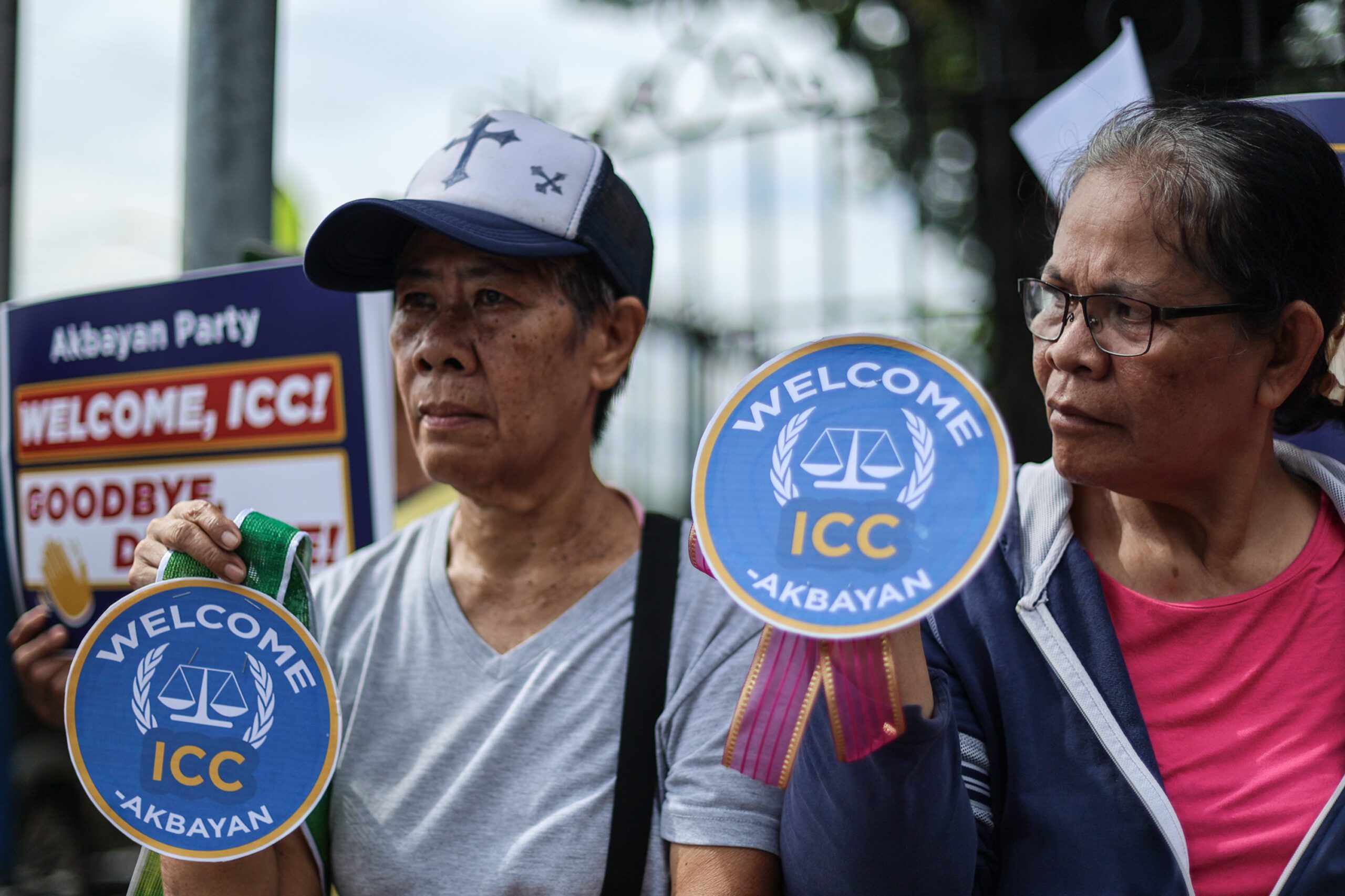SUMMARY
This is AI generated summarization, which may have errors. For context, always refer to the full article.

MANILA, Philippines – Amid mounting pressure on President Ferdinand Marcos Jr.’s administration to cooperate with the International Criminal Court’s (ICC) probe into the drug war killings in the country, legal counsels of the victims said he can cooperate without the country having to rejoin the court yet.
“The president of the Philippines can accept ad hoc jurisdiction of the International Criminal Court to bolster its cooperation with the court’s investigation into the “war on drugs”. Article 12(3) of the Rome Statute provides a mechanism for a nonstate party to accept the jurisdiction of the ICC by lodging a declaration with the registrar,” the National Union of Peoples’ Lawyers (NUPL) and Rise Up said in a statement on Wednesday, November 29.
“In doing so, that State agrees to take on obligations of cooperation with and judicial assistance to the Court,” the groups added.
The victims’ counsels pointed to the low-hanging fruit that Marcos can choose – cooperation – which is an easier approach to the probe into the Duterte drug war killings that numbered thousands.
Rejoining the ICC would require more work and processes, besides the concurrence of the country’s legislature. This would be on top of the possible political costs on Marcos.
On the other hand, cooperating is the bare minimum and is much simpler because it will only require Marcos’ nod.
“Being an exclusive exercise of the president’s powers as chief architect of foreign policy, it would arguably not require Senate concurrence. The Philippines is already obliged to cooperate under its residual obligations as a former member of the ICC. The declaration could be made to formalize its commitment to the court’s processes, following previous examples of Uganda, Côte d’Ivoire, Palestine, Ukraine and Egypt,” the NUPL and the Rise Up statement read.
The victims reiterated the principle about the Philippines still being obliged to cooperate, as stated in Article 127 of the Rome Statute, the treaty which created the ICC. The provision states that all proceedings prior to the withdrawal of a state remain valid. Even the Philippines’ very own Supreme Court upheld this principle.
In addition, the victims did not abandon the push for the government to rejoin the ICC. Kristina Conti, an ICC-accredited assistant counsel and one of the victims’ lawyers, explained that for now, government cooperation is the priority and rejoining the ICC can be discussed later.
“For the victims, cooperating with the court now is imperative. The option to either make a declaration or to rejoin the ICC are matters that the president can consider. But for the victims, the priority now is for the Philippine government to cooperate with the court’s investigation,” Conti told Rappler.
The NUPL lawyer said that Marcos cooperating with the ICC probe could entail:
- Allowing investigators to enter the country and speak to the victims, police, investigators, and other key people in the probe.
- Allowing access to files and evidence, which are under the government’s custody, “and if necessary, authenticating them.”
- Submitting other documents that may be necessary in the probe (examples: police structure, organizational charts, status of cases against police in relation to the drug war, etc.)
Several lawmakers – both from the House of Representatives and the Senate – passed separate legislative resolutions urging the Marcos government to cooperate with the probe. On Wednesday, the House committees on human rights and justice adopted the resolutions at the lower chamber calling for cooperation.
There has been a noticeable shift in the tone of the Marcos government on the ICC. From a more hardline position, declaring non-cooperation with the probe, the administration has recently said that cooperation is now “under study.” – Rappler.com
Add a comment
How does this make you feel?







![[Vantage Point] The PDEA leaks](https://www.rappler.com/tachyon/2024/05/vantage-point-pdea-probe.jpg?resize=257%2C257&crop=255px%2C0px%2C720px%2C720px)
![[Edgewise] How Duterte can elude ICC arrest](https://www.rappler.com/tachyon/2024/05/thought-leaders-How-Duterte-elude-icc-arrest.jpg?resize=257%2C257&crop=272px%2C0px%2C720px%2C720px)




There are no comments yet. Add your comment to start the conversation.